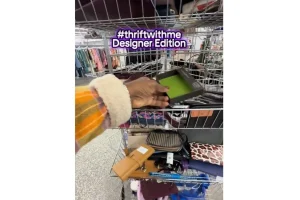The Department of Homeland Security (DHS) has been rocked by a scandal involving two of its own agents in Utah, Nicholas Kindle and David Cole, who are accused of exploiting their positions to engage in illicit drug trafficking. The agents allegedly orchestrated a scheme to pilfer seized drugs, including synthetic “bath salts,” from evidence lockers and other law enforcement agencies, falsely claiming they needed the substances for official investigations. Instead, they allegedly funneled these drugs to a confidential informant who then resold them on the streets, generating substantial profits. This betrayal of public trust not only undermines the integrity of law enforcement but also poses significant risks to public safety by fueling the illegal drug trade they were sworn to combat.
The unfolding investigation has revealed a complex web of deception and abuse of power. Kindle, a special agent tasked with investigating narcotics trafficking, and Cole, his alleged accomplice, reportedly began their illicit activities in 2021. Their scheme involved misappropriating not only drugs but also other valuable items seized as evidence, including cash, a diamond ring, and a Peruvian antiquity. By 2022, their operation had evolved into a sophisticated drug distribution network, with a confidential informant acting as the primary intermediary. The agents allegedly directed the informant to sell the stolen drugs, bypassing legitimate law enforcement channels and pocketing the proceeds, estimated to be between $195,000 and $300,000.
The intricate workings of the alleged conspiracy involved encrypted messaging apps to coordinate drug transactions and clandestine meetings in public places like a Panera Bread restaurant and a Nike store. The agents’ audacious exploitation of their authority and their meticulous efforts to conceal their activities underscore the depth of their alleged criminal enterprise. The case came to light when the informant’s lawyer contacted the U.S. Attorney’s Office in Utah, revealing the agents’ coercive tactics and potentially illegal actions. This prompted an FBI investigation, which included surveillance and recorded instances of drug sales to the informant. One instance involved the retrieval of drugs from a trash can, highlighting the clandestine nature of the operation.
The charges against Kindle and Cole are severe. Kindle faces charges of felony drug distribution conspiracy and conspiracy to convert government property for profit, while Cole is charged with felony drug distribution conspiracy. If convicted, Kindle could face up to 25 years in prison, and Cole could face up to 20 years. Both agents have had their Homeland Security credentials suspended but remain employed pending the outcome of the legal proceedings. The case has raised serious concerns about oversight within the DHS and the potential for corruption within law enforcement agencies.
The alleged actions of Kindle and Cole represent a grave breach of the public trust. Their roles as law enforcement officers tasked with upholding the law and protecting communities were allegedly twisted into a means for personal enrichment and the perpetuation of the very criminal activity they were sworn to combat. The fact that they allegedly used a confidential informant, an individual often in a vulnerable position, to facilitate their illegal activities further compounds the gravity of their alleged misconduct.
This case underscores the importance of rigorous oversight within law enforcement agencies and the crucial role of whistleblowers in exposing corruption. The actions of the informant’s lawyer in bringing this case to the attention of authorities were instrumental in initiating the investigation. The case also highlights the devastating impact of illicit drug trafficking on communities and the need for ongoing efforts to combat this pervasive issue. The alleged actions of these agents, if proven true, represent a betrayal of their oaths and a serious threat to public safety and the integrity of the justice system.







